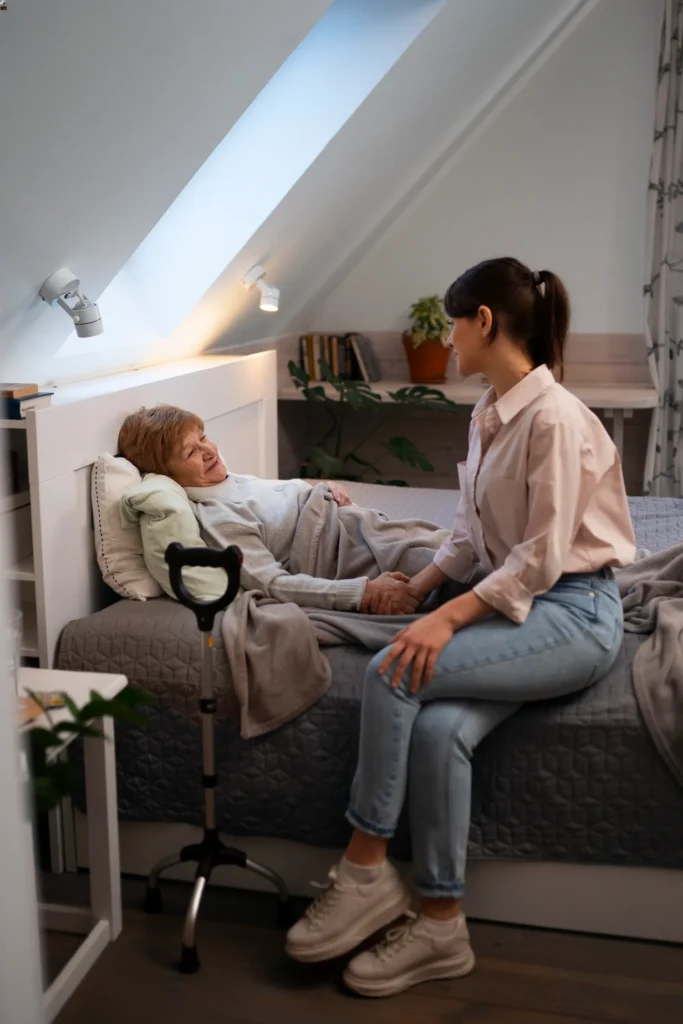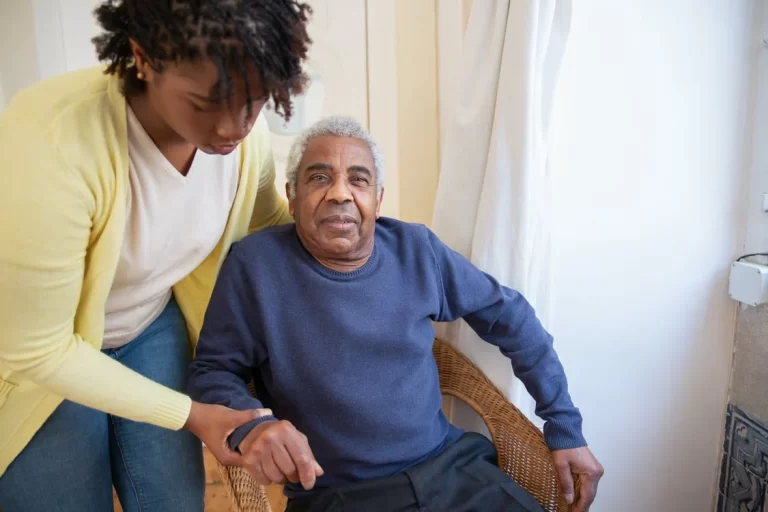Essential first steps to working with a support at home provider for disability support
Essential first steps to working with a support at home provider for disability support
Blog Article
The Significance of Impairment Services and the Impact of Home Treatment Providers
Handicap services are vital for boosting the lives of individuals with disabilities. They offer crucial support that fosters freedom and well-being. Home care companies play a key function in this framework by supplying tailored aid customized to special requirements. This assistance not just benefits individuals however additionally alleviates the stress on household caregivers. Understanding these dynamics discloses a much deeper connection between autonomy, community, and care. What lies ahead for these critical services and their effect?
Understanding Disability Providers
While lots of may not totally understand the intricacies of special needs services, they play an essential role in improving the high quality of life for individuals with handicaps. These solutions incorporate a broad selection of support group made to assist individuals in navigating daily difficulties. From giving accessibility to education and job opportunity to helping with medical care and rehabilitation, disability services intend to promote independence and inclusion.Key components include case administration, advocacy, and assistive innovation, which aid people accomplish individual objectives. Furthermore, community-based programs frequently promote social links, decreasing feelings of seclusion. Various companies and government entities collaborate to assure that people get customized support according to their special requirements. Recognizing these solutions is essential, as they encourage people with impairments to lead fulfilling lives, actively participate in their neighborhoods, and understand their capacity. Eventually, effective impairment services are foundational to advertising equity and access for all.

The Duty of Home Care Providers
Home care companies play an important role in supplying individualized assistance to people with disabilities, permitting them to maintain freedom in their own homes - ndis providers. These professionals offer a vast range of solutions tailored to fulfill the one-of-a-kind needs of each individual, making certain that support is both reliable and appropriate. They assist with everyday tasks such as dish preparation, personal health, and medication management, which are critical for boosting the top quality of life for those they serve.Moreover, home care suppliers work as an essential link between individuals and their health care requires, assisting in communication with clinical experts and collaborating required solutions. Their visibility also minimizes the concern on household caretakers, promoting a much healthier dynamic within homes. By cultivating a secure and helpful environment, home care suppliers equip people with handicaps to involve with their areas, go after individual rate of interests, and eventually lead meeting lives while continuing to be in the convenience of their homes
Personalized Care and Assistance
Individualized care and assistance are vital parts of effective home care services, as they cater to the private requirements and preferences of each individual with a handicap. Home treatment carriers evaluate the unique requirements of each customer, creating tailored plans that prioritize their convenience, health, and health and wellness. This personalized technique not just boosts the top quality of treatment but additionally fosters a feeling of self-respect and respect.Caregivers are trained to adjust their methods, making certain that solutions align with the client's lifestyle, cultural history, and personal choices. Regular interaction in between clients and caretakers helps to refine care strategies, attending to any kind of transforming needs quickly. Furthermore, the focus on personalized assistance motivates the development of trust fund and rapport, which can greatly improve the overall caregiving experience. Ultimately, personalized treatment and support encourage people with impairments to get the aid they need in a fashion that really feels considerate and affirming.
Enhancing Self-reliance for People
Enhancing self-reliance for people with handicaps is an essential goal within home care solutions. These solutions offer tailored assistance that empowers customers to take part in everyday tasks autonomously (home care provider). By giving support with individual treatment, movement, and family jobs, home care service providers make it possible for people to preserve a sense of control over their lives. This autonomy promotes self-esteem and strength, essential parts in the trip towards independence.Furthermore, home treatment solutions typically include skill-building opportunities that educate people flexible approaches, boosting their capacity to execute jobs individually. This assistance not only satisfies immediate demands yet also advertises long-lasting self-sufficiency. In addition, caregivers can assist in creating a setting that suits specific choices and abilities, guaranteeing that clients really feel comfy and secure. On the whole, the focus on improving independence via home treatment solutions is considerable in advertising dignity and top quality of life for individuals with handicaps
Building Neighborhood Inclusivity
While cultivating individual freedom is vital, developing community inclusivity for individuals with disabilities is just as essential. Inclusivity enhances social links, permitting individuals to participate totally in neighborhood life. Neighborhood interaction efforts, such as understanding projects and comprehensive my response occasions, play a significant duty in damaging down barriers and difficult false impressions concerning disabilities.Accessible public rooms and transport options are essential elements that facilitate involvement and assimilation. Collaboration amongst neighborhood companies, organizations, and advocacy groups can create encouraging networks that motivate inclusivity. Additionally, training area members on special needs recognition promotes compassion and promotes a culture of acceptance.Ultimately, an inclusive community not only benefits people with disabilities but enriches the whole social textile by accepting diversity. By understanding and attending to the distinct requirements of individuals with impairments, communities can cultivate an atmosphere where everybody has the opportunity to thrive and add meaningfully.
The Influence on Caretakers and families
Numerous households and caretakers of people with specials needs experience an extensive influence on their everyday lives and emotional wellness. The obligations connected with caregiving can cause significant physical and psychological strain, often leading to caretaker fatigue. This can reduce their ability to supply efficient support and create a caring atmosphere. In addition, the psychological toll can cause sensations of seclusion and anxiousness, affecting family characteristics and relationships.Access to special needs services and home treatment service providers can alleviate a few of these burdens by supplying required assistance and sources. These services enable family members to share caregiving duties, enabling caretakers to take breaks and focus on their own wellness. Improved assistance networks foster a feeling of area, which can improve emotional durability. Inevitably, the presence of extensive impairment solutions significantly impacts households, advertising much better wellness results and boosting the quality of life for both caregivers and people with handicaps.
Future Trends in Disability Services and Home Treatment
As the landscape of special needs solutions and home care advances, modern technology integration is coming to be significantly famous. This shift enables for more personalized assistance versions that provide to specific demands and choices. By taking advantage of innovative devices, suppliers can improve treatment high quality and boost outcomes for those they serve.
Innovation Integration in Care
The combination of technology in disability solutions and home treatment is reinventing the means treatment is delivered and experienced. Advanced tools such as telehealth systems, wearable tools, and clever home systems improve access and communication in between caretakers and clients. These innovations assist in real-time tracking of wellness metrics, permitting timely interventions and individualized treatment modifications. In addition, mobile applications encourage individuals with impairments to manage their own care strategies and accessibility resources more effectively. Automation and expert system are streamlining management jobs, liberating caregivers to concentrate on supplying high quality assistance. As innovation continues to progress, its integration within these industries assures to enhance end results, increase self-reliance for customers, and maximize resource allowance for service providers.
Customized Support Versions
While standard treatment designs usually embrace a one-size-fits-all technique, the future of special needs services and home treatment is progressively leaning towards individualized support models that cater to the one-of-a-kind requirements of each person. These designs highlight collaboration between treatment companies, people, and their households, ensuring that services straighten with personal preferences and certain challenges. By leveraging evaluations and responses, service providers can customize treatments, whether they involve daily living support, healing tasks, or emotional support. This personalized strategy not just enhances the quality of care but additionally promotes better self-reliance and wellness among people with disabilities. As understanding of these advantages expands, personalized support models are poised to end up being the requirement in handicap solutions and home treatment, changing the landscape of treatment distribution.
Regularly Asked Questions
What Certifications Do Home Care Providers Normally Required?
Home treatment providers typically call for a high school diploma or matching, go now completion of a state-approved training program, certification in mouth-to-mouth resuscitation and emergency treatment, and typically a background check to assure security and trustworthiness for customers.

Just How Are Handicap Provider Moneyed and Accessed?
Special needs services are generally funded via federal government programs, click this personal insurance coverage, and grants. Accessing these solutions commonly includes assessments, eligibility standards, and applications, which differ by place and particular needs of people looking for support.
Can Home Care Providers Be Personalized for Particular Disabilities?
Home care solutions can undoubtedly be personalized to meet the unique demands of individuals with specific handicaps. This personalization enables tailored assistance, enhancing the top quality of care and boosting the general well-being of customers.
What Are Usual Difficulties Encountered by Home Treatment Providers?
Common challenges encountered by home care service providers consist of staffing shortages, poor training, communication obstacles with clients and family members, varying levels of customer requirements, managing insurance coverage intricacies, and making certain constant high quality of treatment across various settings.
How Can Families Locate Trustworthy Handicap Solutions in Their Location?
Family members can find dependable handicap services by researching regional firms, speaking with on the internet directory sites, seeking suggestions from health care specialists, and connecting with support system. Detailed evaluations and interviews with provider aid assure quality and compatibility with requirements. Customized treatment and assistance are crucial parts of effective home care services, as they cater to the individual requirements and choices of each person with an impairment. By supplying help with individual treatment, wheelchair, and house jobs, home treatment service providers allow individuals to maintain a sense of control over their lives. The integration of technology in impairment services and home care is revolutionizing the way care is delivered and experienced. While traditional care versions often take on a one-size-fits-all strategy, the future of handicap solutions and home treatment is progressively leaning towards personalized assistance versions that cater to the distinct needs of each individual. Home treatment solutions can certainly be personalized to meet the unique demands of people with certain impairments.
Report this page